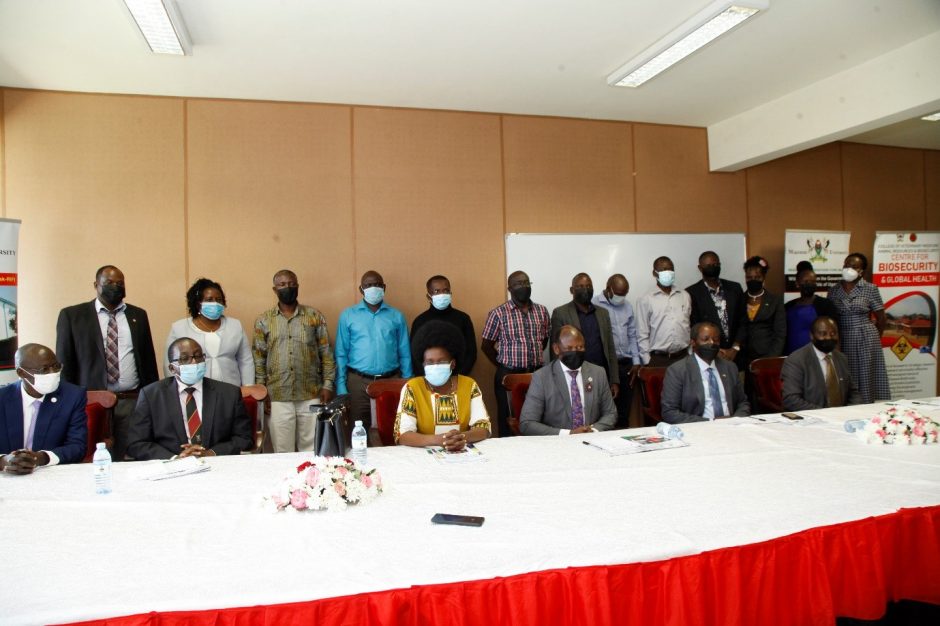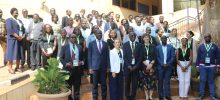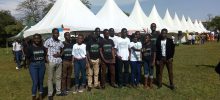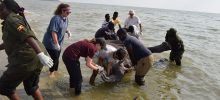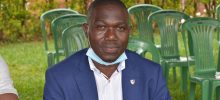THE MAK-RIF/COVAB RESEARCH AND INNOVATIONS DISSEMINATION 2021
The College of Veterinary Medicine, Animal Resources and Bio Security (COVAB) with support from the Makerere University Research and Innovations Fund (Mak-RIF) held an open day during which a number of research outputs and innovations were disseminated.
The event held on Monday 15th November 2021 in Makerere University brought together a number of stakeholders to hear from the college about research and innovation that has been going on for the past three years with over 7 billion shillings spent on 60 Mak-RIF supported research projects over a three-year period.
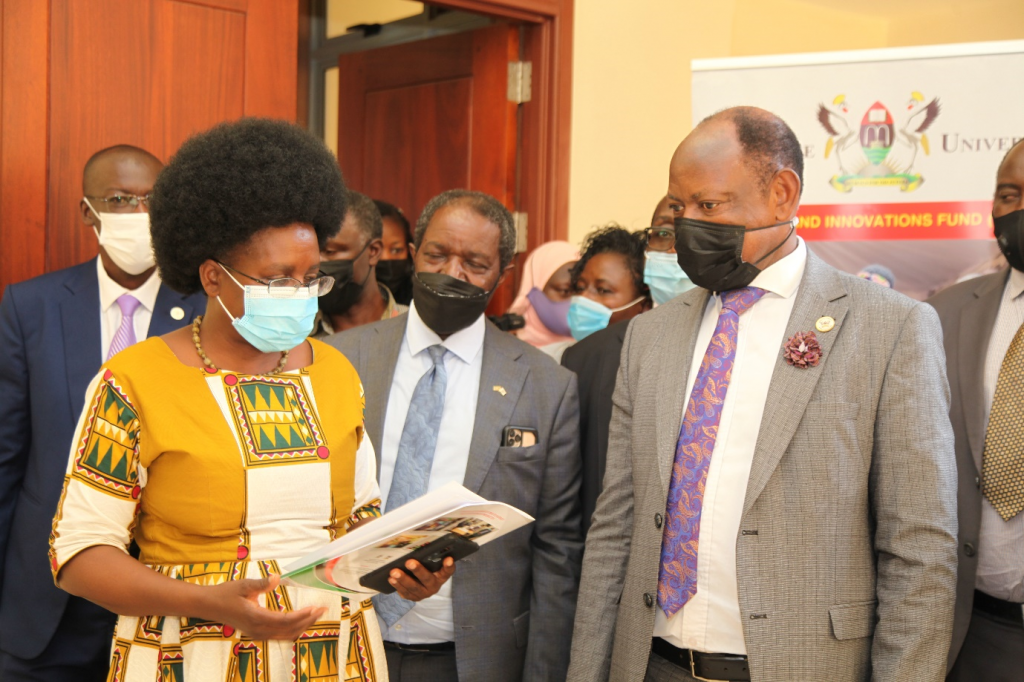 While presiding over the event where ten of the projects were disseminated, the Minister of Science, Technology and Innovation Dr. Monica Musenero Masanza commended the leadership at the college and the University as a whole for the flexibility and outlook that has enabled the realigning of university business to the National development Plan III which she said emphasizes science led economic social transformation.
While presiding over the event where ten of the projects were disseminated, the Minister of Science, Technology and Innovation Dr. Monica Musenero Masanza commended the leadership at the college and the University as a whole for the flexibility and outlook that has enabled the realigning of university business to the National development Plan III which she said emphasizes science led economic social transformation.
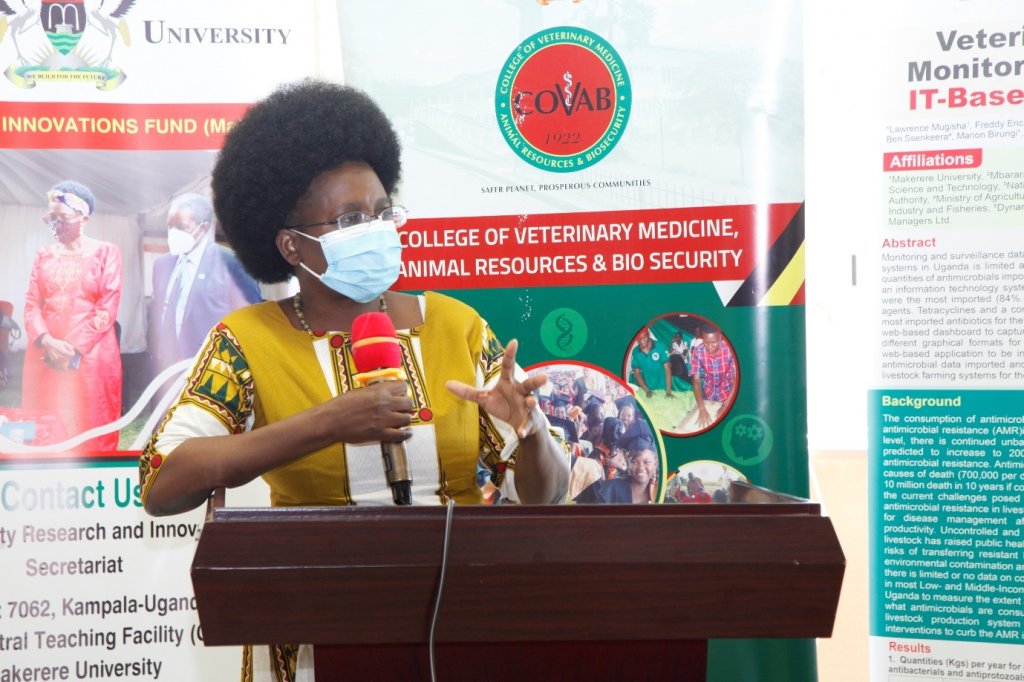 Dr. Musenero emphasized the importance of the output from the University indicating that many of the strategic industrial value chains were aligned to colleges in the University. She enumerated them to include the engineering economy, mobility, beauty and apparel, the digital economy, agro security and the pathogenic economy.
Dr. Musenero emphasized the importance of the output from the University indicating that many of the strategic industrial value chains were aligned to colleges in the University. She enumerated them to include the engineering economy, mobility, beauty and apparel, the digital economy, agro security and the pathogenic economy.
‘We have created a prototype along many value chains and Makerere has to play a core role taking on a new mantra as a University for Technology advancing the country’ she said urging the institution to aim at making more influence on the economy. The Minister cited the example of the two centres of excellence in CoVAB like the Bio Security centre which was to be supported to become a national centre of excellence.
In his remarks, the Vice Chancellor Makerere University Prof. Barnabas Nawangwe noted that there was tremendous transformation going on in the colleges adding that he was excited to witness what he always wanted the University to be. While congratulating the researchers from CoVAB for the good work done, the Vice Chancellor noted that universities were increasingly getting tasked to show what they are doing for society for instance their contribution towards the realization of the Strategic Development goals. ‘As a university we have a role to transform the nation’ he said adding that we were duty bound to be part of the solution to our society.
The Chairperson of the Mak RIF fund Makerere University Prof. William Bazeyo congratulated CoVAB for choosing to associate with development that was to take Uganda to the next level through research and innovation and the determination to cause change. He commended Prof. John David Kabasa, the Principal CoVAB for taking lead in the research effort on issues affecting the people, citing the Tick project as an example.
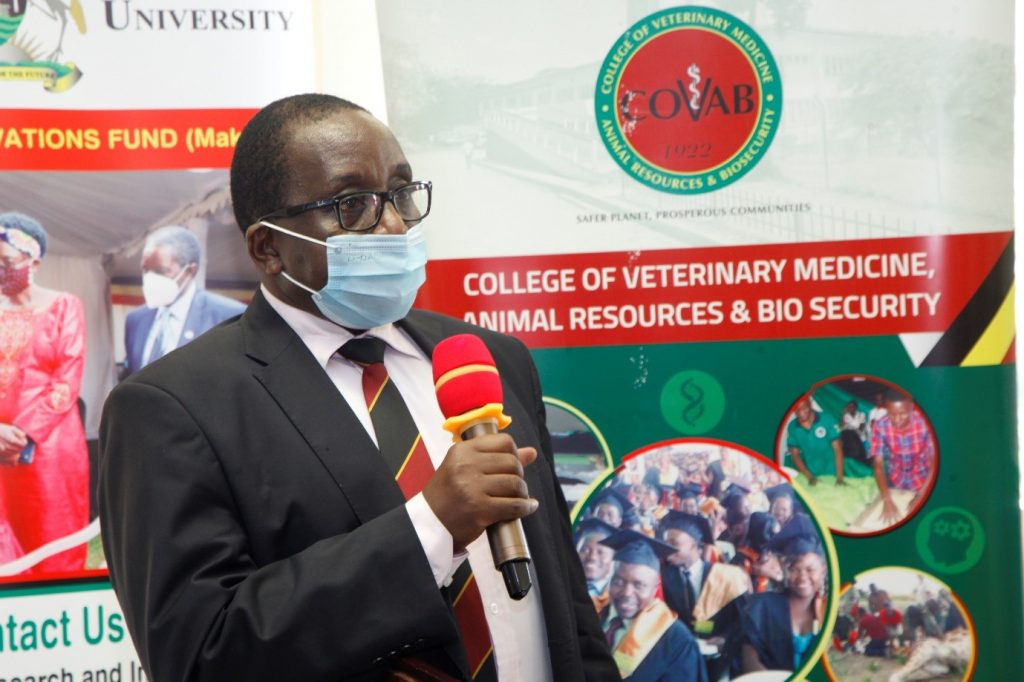 Prof. John David Kabasa, the Principal CoVAB while welcoming guests on behalf of the management and staff of CoVAB said as scientists, they were ready to take off given the various grants they receive. He commended the Minister for Science Innovation and Technology for the support rendered to the college more so the revamping of the research infrastructure more so the centre for Bio security.
Prof. John David Kabasa, the Principal CoVAB while welcoming guests on behalf of the management and staff of CoVAB said as scientists, they were ready to take off given the various grants they receive. He commended the Minister for Science Innovation and Technology for the support rendered to the college more so the revamping of the research infrastructure more so the centre for Bio security.
He presented to the Minister some of the projects that were being disseminated and they included the following;
Developing Monitoring System for Quantifying and Mapping antibacterial used in Livestock Farming Systems in Uganda by Prof. Lawrence Mugisha.
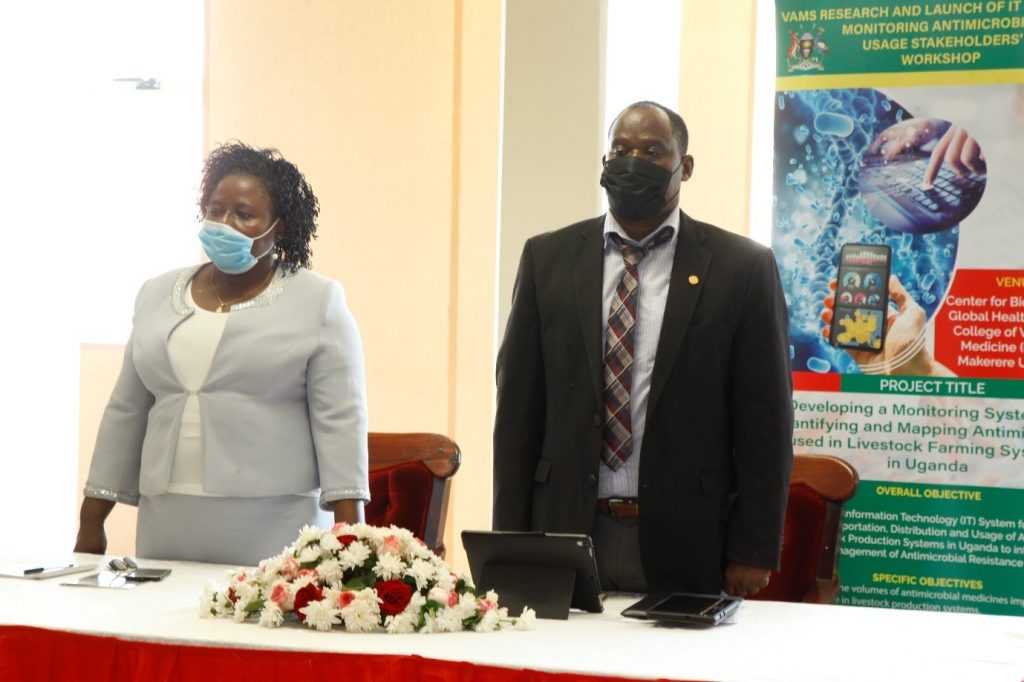
Developing Novel Phytonutraceuticals from wild edible fruits and vegetables for Mitigating Malnutrition among pregnant women and School going children by Dr. Anne Juliet Nalunkuma Kazibwe. The study established that women and children had issues of malnutrition due to poor feeding. There were a number of deth related to malnutrition. The researchers identified the wild fruits like enderema, matungulu, katunkuma, nakati , mushrooms and added value based on a feeding value. They came up with a cocktail packaged in products like bagiya, cookies, porridge powder to supplement diet.
Establishment of a platform to strengthen production of safe and healthy dairy and chicken derived foods using one health to counter antimicrobial resistance and drug residues in Uganda. (PLAS-SAFE). Dr. Paul Ssajjakambwe and team have established a platform called (PLAS-SAFE) to strengthen the production of safe chicken and diary derived foods using one health drug residue approach. This is expected to support health, trade and research which are some of the key strategic directions of the country.
Developing a community-based model for integrating bioenergy and poultry production using rice agro-waste (Integrated bioenergy agriculture model) by Prof. David John Kabasa. The study was aimed at addressing the challenges of accessing wood fuel arising from destruction of nature. They came up with briquettes made from rice husks.
Optimization of the dosage, adjuvant and route for the candidate anti-tick vaccine with Dr. Kokas Ikwap as the Principal Investigator.
An Assessment of veterinary drug residues in milk, chicken and eggs and development of a residue monitoring plan for these foods in Uganda and Dr. John Kateregga.
Cytokines as novel therapeutic agents in the management of late-stage Trypanosoma brucei rhodesiense sleeping sickness: a preclinical trial (CaNTMS) by Dr. Charles Drago Kato.
Strengthening veterinary clinical research, training and outreach at Makerere through a learner-centered herd-health and community action research program (SHARP) for improved animal welfare, health and productivity by Prof. James Okwee-Acai. The study was aimed at documenting the baseline animal health, welfare, productivity indices in peri urban Kampala and Wakiso Districts. It aimed at strengthening the capacity of veterinary clinical research, training and community outreach as well as improved animal welfare, health and productivity.
Optimizing SMART Dairy Technologies for Efficient Sustainable Productivity of Dairy Farmers in Uganda Dr. Robert Tweyongyere.
Agrochemical residues in meat and milk of cattle in the acaricide-tick-resistant infested areas, A case study of Gomba District by Dr. Peter Waiswa.
The study established that majority of the farmers use chemicals to kill ticks instead of the conventional acaricides due to the effectiveness of the drug. The study established that milk and beef from the study area contained agrochemical residues and that although they were below the recommended maximum residue limits, this could reach critical levels if no intervention was done to stop the vice.


